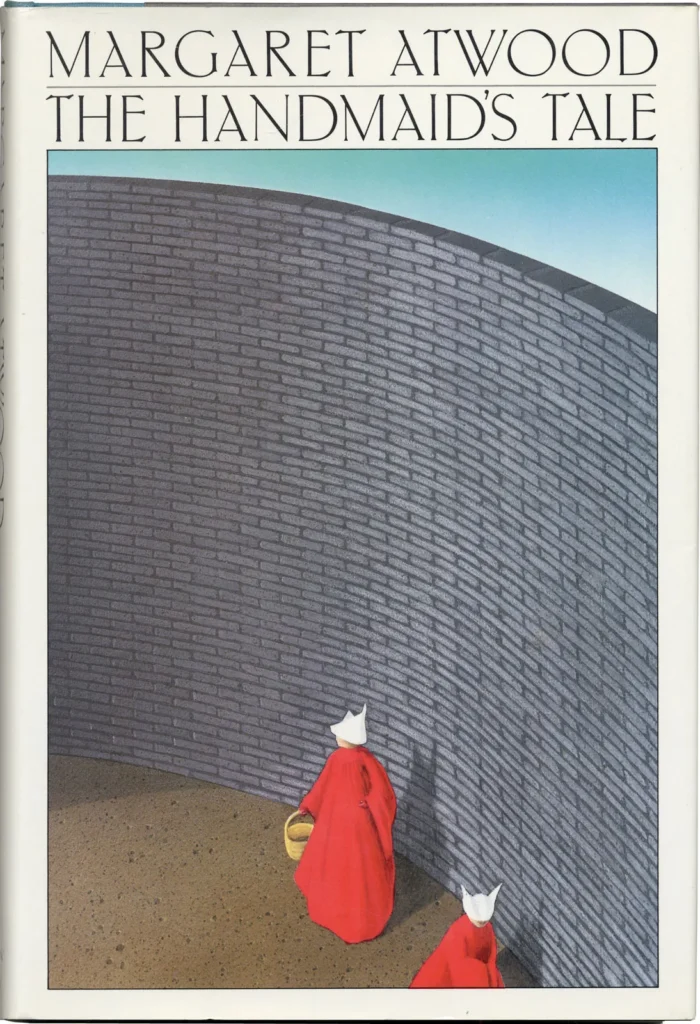This essay was made possible by the Relevance to Resonance: Exploring The Practices of Transcendence in Ministry and Congregational Life Lilly Endowment Grant in association with Luther Seminary.
All pastoral ministry is challenging, but the challenges shift when one adds the stress and pressure of pastoring at a Christian college. Along with the physiological and psychological changes students undergo, they also face the intense rigor of a college education, and expectations of robust spirituality. Even still, when I left the local church a few years ago and entered the academy, I confronted a challenge that brought me to my knees.
When a sophomore whom I’ll call Vanessa entered my office, her deep questions were not originally unlike those of many students before her. Vanessa attended a fundamentalist Christian high school and had been taught that the key to Scripture was a certain set of unwritten phrases that told believers everything they needed to know. Phrases such as “everything happens for a reason,” “faith over fear,” “God is in control,” and “unapologetically Christian.” These phrases simplify a Christian response to a complex human experience into a bumper sticker slogan of self-transformation. These aphorisms usually require the jettisoning of critical thinking skills and the spiritual manifestation of divine promises. By the time that Vanessa arrived at my institution, where her family, church, and community expected her to deepen her good Christian morals and beliefs, she had run up against a barrier in her formation. She did not struggle with the phrases around Scripture, but with the ones surrounding mental health and suicide.
Not one of God’s favorites
Leaders, teachers, and pastors taught her that poor mental health was the result of a lack of faith, and if one took their own life, God would send them to hell. A year prior to walking into my office, one of Vanessa’s friends took his life. He had a long, documented history of mental health challenges yet had only been told to pray more fervently and to ask for forgiveness for some unconfessed sins. Vanessa had since concluded that God must pick favorites, because if God delivered some and sent others to hell, then God did not love all of God’s children. Thus, God is not good.
“I struggle too,” she confided in me, “I have prayed for deliverance, and feel that I am not one of God’s favorites.” That she struggled with the same challenges as her friend and believed that she would be sent to hell was too much to bear. I cried at the pain she carried. I was at a loss for words, and don’t remember what I said through the tears, but I remember wrapping our session up. I was certain she’d never darken my door again. I believed that if I could not keep it together, I could not help. In my own way, with Vanessa, I suffered under a phraseology—simplifying theology into catch phrases—about what it meant to be a pastor, and a different heartache.
Vanessa’s heartache as a result of Christian phraseology illustrates the lure and power of secular mysticism, which theologian Andrew Root defines as “a spirituality that seeks to overcome our impediments (even our guilt) by drawing us into a spiritual union.” However, this union in our secular age is not with God but shifts to other sites of meaning, such as the self. To be clear, the secular is not some sphere of meaning in competition with the sacred, but rather the collapsing of all spheres of meaning into the immanent frame. Inside this secular mysticism, certain Christian phrases play a role in developing a grammar of personal transformation that entails a reorganization of the self-according to a certain image of the ideal Christian person (for example, mentally well, healthy, affluent). The catalyst for Vanessa’s transformation is not God but the phrases that lead to self-transformation. Their repetition formed a kind of spiritual “pull yourself up by your bootstraps” (what Root calls heroic boldness) mentality that would make her self-sufficient and the perfect Christian.
Our need for the living God

Much to my surprise, Vanessa did return, but at first I didn’t feel adequate to account for her questions and experiences. Only as I traveled with Vanessa, did I realize that there were some parallels between her and the Gileads of contemporary literature. The first Gilead is the Republic of Gilead, found in Margaret Atwood’s The Handmaid’s Tale, which offers a unique artistic account of Scripture that travels along the pathway of the beyond. Offred, the novel’s narrator, experiences the weight of phraseology, like the ones used on Vanessa, which makes her life impossible yet sounds like Scripture. In one instance, Offred recounts that a commander, the leader of the Republic of Gilead, repeatedly says, “Blessed are the silent” and omits that the meek will inherit the earth, but as Offred, who like all women in Gilead was not permitted to read, notes, “there was no way of checking.” Like Vanessa, to challenge the dominant interpretations of her community was to be called a heretic. Even basic affirmations from Scripture, such as the notion that women were created in the image of God, were suspect.
In my conversations with Vanessa, we tried challenging basic ideas that God wanted her suffering and was against her. In our conversations, Vanessa’s pain felt akin to Offred’s as she details her version of Matthew 6:9-13 (the Lord’s Prayer). This prayer is apophatic but gestures beyond the Republic of Gilead through negation to the Living God. At the beginning of the prayer, Offred prays to God in heaven to know God’s true name. The God in whose name the Republic of Gilead carries out its business is not the God to whom Jesus teaches his disciples to pray. Offred negates Gilead’s God in favor of the living God by insisting that “what’s going on out there is [not] what You meant.” The prayer represents one seeking survival and meaning beyond the life given to her by the Republic of Gilead. This prayer is an atheistic ritual to Gilead’s god that seeks a living God who sees Offred. This performative gesture transforms Offred by giving her hope not in Gilead, but in God. God is beyond, living, and inverts the order of meaning in the Republic of Gilead. As Root argues, a pathway to the transcendent pushes back against the secular mysticisms of our day. I still struggled, but I know what Vanessa and I both needed, namely the living God.
Resonance is a relationship
In my struggle, I sought counsel from a dear friend in ministry. I told her about the times when I was brought to tears by Vanessa’s struggle. In her wisdom, my colleague asked whether my tears were the best gift I could give. Maybe, she said, you are the face of God she cannot yet see. I did not appreciate this advice at first because I am not divine, but it reminded me of a second Gilead: the fictional small town of Gilead, Iowa, depicted in Marilynne Robinson’s Gilead quadrilogy. The town showcases a people looking to that which is outside and beyond it, not fundamentally concerned with the perfect repetition of the text. The Reverend John Ames, the narrator of the first novel, describes this beyond reality that the town wrestles with when he describes the Christian God as “a reality embracing this one but exceeding it.” The people of Gilead find themselves haunted by the holy that exceeds and embraces, and this hidden character motivates a strange grace that brings them together.

No single person represents this better than the character Lila. When Lila arrives in Gilead, she quickly lands on Rev. Ames’ radar. Lila resists the charity and kindness of Ames and his community, instead preferring to find work for herself. However, the consistent care and concern by Ames and his church ultimately win Lila over to an uneasy relationship.
John Ames and Lila eventually fall into a romantic entanglement. Still, the love for Lila exceeds the romantic, becoming a holy love, a desire for her well-being and place in the Christian community. When Lila finally takes her place among the community she asks to be baptized, Ames weeps as he reads the baptismal rites over her. Reflecting on the nature of this baptism and Ames’ desire to see Lila among the saints, Lila thinks, “In that eternity of [Ames’], where everybody will be happy, how could he feel the lack of her, the loss of her? She had to think about that … It must always be true that there are the stragglers, people somebody couldn’t bear to be without, no matter what they’d been up to in this life.” Ames illustrates what sociologist Hartmut Rosa calls resonance, a relation that leads to transformation. Resonance is a relationship where each party forms an attachment that remains open enough for transformation. Though not based on emotional content, the relationship must do the work of forming connections of influence and care. Ames developed this kind of relationship with Lila. And this, not necessarily his sermons or the biblical passages she copied, led to her transformation. In short, resonance is the way, not phraseology.
Over the course of our meetings, Vanessa and I developed a kind of holy resonance. Still, I desired a “balm” in Gilead for her. I wanted Vanessa to know a God who does not merely rely on phrases that do more harm than good. Here, then, is a third Gilead represented by the famous antebellum African-American spiritual:
“There is a balm in Gilead
To make the wounded whole
There is a balm in Gilead
To heal the sin-sick soul…
If you can’t pray like Peter
If you can’t be like Paul
Go home and tell your neighbor,
He died to save us all.”
A few months ago, the grief of Vanessa’s story was compounded by the news that the restructuring of the university was leading to the elimination of my role. The messy work of telling students that I would no longer be their campus pastor has been difficult and full of tears. However, Vanessa’s meeting worried me most. We began with our small talk as usual, but the mood of the meeting was heavy. As I expressed my regret that I would not get to see her through her time at the school, she asked me a question: “Will you baptize me?” I will admit the question caught me off guard. Vanessa never settled on her view of the faith while we met. When I asked her about this, she said that my presence and affirmation of her and her struggles were catalysts that led to her desire for baptism. She admitted she still had questions, but that something through our conversations and relationship compelled her to God. Vanessa was not able to pray like Peter and Paul. Phraseology had corrupted Scripture’s goodness for her. Yet, there is a balm in Gilead for Vanessa. One that embraces her reality that does not play the games of a secular mysticism. Something beyond her embraced her reality as its own.
I will baptize Vanessa into the faith sometime in the next few months. I am sure, like John Ames, I will cry when I read the rites. Vanessa has taught me that resonance is a much more satisfying transformation than the secular mysticisms of phraseology. Vanessa moved through various Gileads to encounter a transcendent balm. The catalysts from the Republic of Gilead to the balm of Gilead did not emerge through simplistic phrases, but through resonant relationships that God’s reality embraces our own.






You’re a good man, Hank!